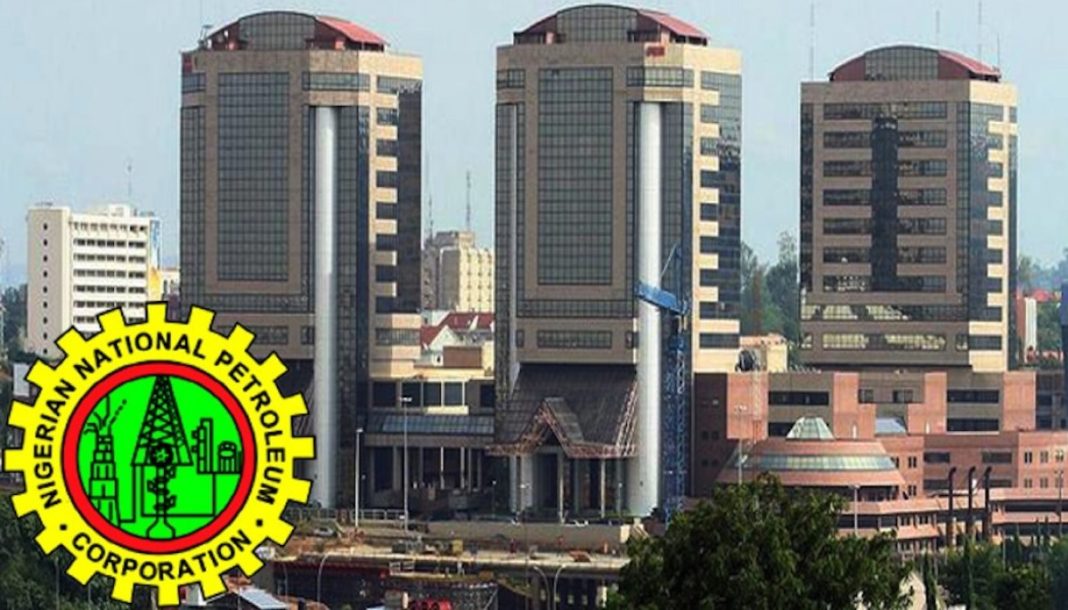The Nigerian National Petroluem Company Ltd(NNPCL) has secured a $5bn corporate finance commitment from the African Export Import Bank to fund major investments in Nigeria’s Upstream oil and gas industry.
The funding commitment is a fallout of the meeting between the Chairman of the Board of Directors and President of the African Export-Import Bank( Afreximbank), Benedict Oramah; and the NNPC Ltd team led by the Group Managing Director/Chief Executive Officer , Mele Kyari, in Cairo, Egypt, recently.
In the industry, the move is seen as a major milestone achievement in the quest by the corporation to scale up its investments in the oil and gas industry following the commencement of the implementation of the Petroleum Industry Act,(PIA).
The PIA was signed into law by President Muhammadu Buhari on 16th August, 2021.
Following the assent of the President, the NNPC LTD was incorporated by the Corporate Affairs Commission on September 22 last year after it received application for its registration from the Federal Government.
The new legislation has provided business opportunities that will enable the NNPC earn more revenue for the country and attract foreign direct investment into the Nigerian energy sector.
The PIA has also raised stakeholders expectations on the company, even as it has given it a wide room to stimulate investments in the oil and gas industry.
The NNPC’s $5bn corporate finance commitment from Afreximbank is seen by oil industry stakeholders as a dividend of the Petroleum Industry Act and the incorporation of the NNPC as a limited liability company.
Under the NNPC Ltd funding strategy for selected upstream investments, the Company would be raising between $3.5bn and $5bn as corporate finance to fund major upstream investments.
To achieve this objective, the NNPC plans to take over ownership from non-investing partner through acquisition of pre-emption rights in the sample Joint Venture.
The NNPC’s strategy would also see the company investing in assets to address integrity, bottlenecking and growth issues including rig-less activities, and drilling campaigns in the oil industry.
The company’s preference is to source lenders that can provide this funding in a ratio based on the capacity of each of the lenders.
The funding would also be used to finance part of the NNPC’s investment including acquisition of interest in quality upstream oil and gas producing assets.
The acquisition is an integral part of the NNPC’s corporate strategy to rebalance its portfolio by divesting from some toxic assets to acquire choice strategic assets that will help support its long term strategic objectives.
The repayment of the funding is expected to be done through a Forward Sale Arrangement whereby the funds provided will constitute the payment purchase of 90-120kpd of crude to be delivered to the lender over a period.
The repayment of the fund is being projected to be made within a four to eight-year period with an objective to ensure major fiscal obligations and operating expenses are discharged appropriately.
The meeting between the NNPC and Afreximbank team agreed to intensify efforts at deepening investment in Nigeria’s oil sector.
Also, the NNPC and the Afreximbank agreed to, among other things, deepen the business collaboration between the two institutions.
The bank agreed to enter into a finance advisory and fundraising role to raise $5bn towards the “acquire, invest and operate energy producing assets in Nigeria as part of NNPC’s growth strategy following its incorporation as a limited liability company.”
As part of the landmark transaction, Afreximbank will also underwrite $1bn as part of forward sales base trade finance transaction.
The NNPC and Afreximbank also explored the innovative idea of establishing a pan-African Energy Transition Bank and agreed to collaborate towards achieving the objective.
Mr Kyari was accompanied on the trip by the Chief Financial Officer, Umar Ajiya; the Group Exceutive Director , Upstream, Adokiye Tombomieye; the Group General Manager, NAPIMS, Bala Wunti; the Managing Director, NNPC Trading, Lawal Sade, and others.


